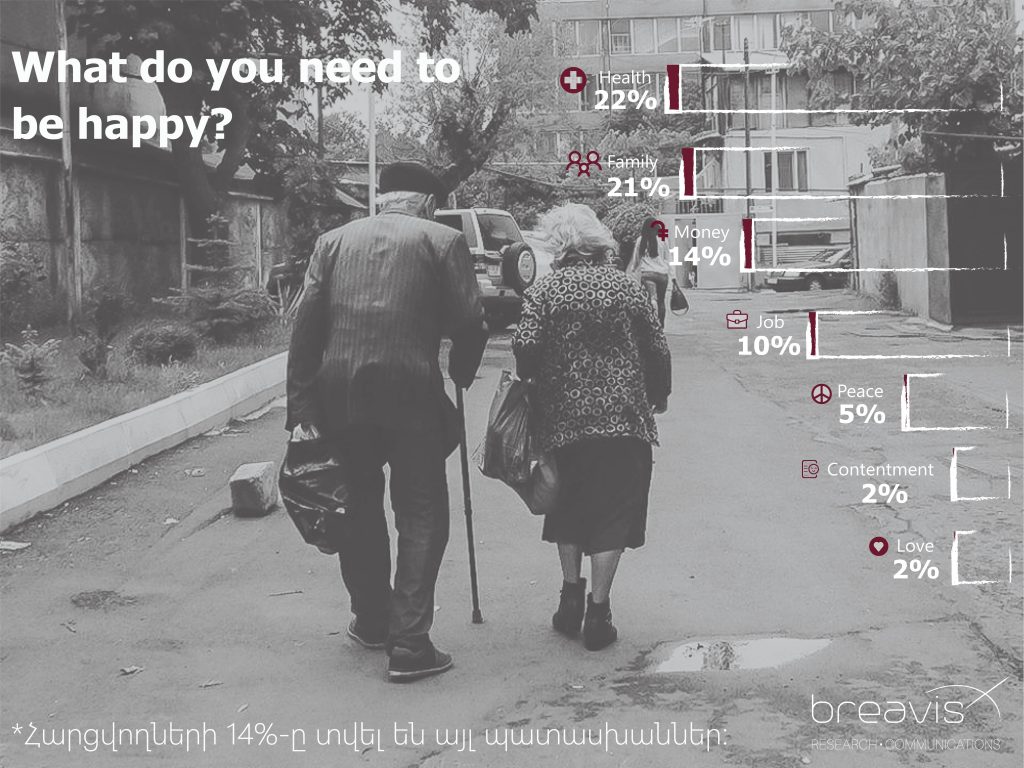
The results of the recent research conducted by Breavis among the Armenian adult population affirms that each individual has his/her own perception of happiness. The question “What do you need for happiness?” has been answered quite differently. The majority of the respondents think that the happiness is related to health (22%) and family (21%). The percentage of the people who relate the happiness to money is 14%. The 10% of the respondents have marked job and welfare as a significant precondition for happiness. Peace, as well as spiritual satisfaction and love, are also important and comprise 5% and 2%, respectively. The remaining 14% of the answers are surprisingly diverse – respect, mutual understanding, conscience, independence, kindness, good moments, smiles, etc.
The perceptions of happiness vary across the population segments and depend on the needs of a given segment.
The bigger the need is in the factor that determines happiness, the higher is the probability that the respondent will first remember and mark that very option. So, 20% of the unemployed and 8% of the employed respondents consider job availability as a significant precondition for happiness. 15% of the representatives of a segment having a low level of welfare and 9% of the representatives of a segment having a high level of welfare have marked money as a precondition. 21% of the youth and 27% of the elderly consider health as a significant component of happiness.
Overall, 81% of the population consider themselves happy, the criterion is varying across social groups. So, 89% of the youth and 73% of the elderly consider themselves happy. 90% of the respondents in a segment having a high level of welfare have given a positive answer, while those in segments having a low level of welfare comprise 74%. 79% of the people having secondary education and 86% of the graduates of higher educational institutions consider themselves happy.
It may be concluded that being happy is somewhat conditioned by belonging to a particular social group and lifestyle. So, among people generally not watching TV, frequently attending café, theatre and concert, as well as those going in for gymnastics, the percentage of people considering themselves happy is far higher. Surely, the cause-and-effect relationship is not obvious, and we can not say whether people performing these activities are happier or, on the contrary, happy people are more inclined to such a lifestyle. Anyway, if you feel unhappy, it is always meaningful to change something in everyday life such as running in the morning, visiting friends more frequently or losing the TV remote control and finding an interesting book instead.
Photo credits: Tamara Harutyunyan



